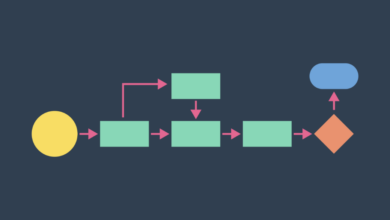Crafting the Future: AI in Gaming Hardware

Introduction to AI Gaming Hardware
In the swiftly evolving realm of technology, Artificial Intelligence (AI) acts as a transformative force within the gaming industry. The integration of AI into gaming hardware has not only revolutionized how games are played but has also set a new bar for immersive experiences. The gaming experience is enhanced through AI optimized hardware, offering players unprecedented interaction and realism. This seamless blend of technology fosters an era where gaming is both an art form and a science, pushing the boundaries of creativity and innovation while delivering a powerful gaming experience.
AI’s role in refining gaming hardware is critical, as it transforms these systems into agile platforms capable of adapting to the players’ every move. This creates an environment where the game world feels alive, responding to the actions and decisions of the player in real time. This move towards AI-enhanced systems marks a significant leap forward in gaming technology, providing faster data processing capabilities, greater adaptability to user preferences, and unparalleled graphics realism. The age of AI in gaming is ushering in an era of experiences that are richer, more engaging, and deeply personal.
Core Components of AI-Optimized Gaming Hardware
At the heart of AI-optimized gaming hardware lie potent components such as Graphics Processing Units (GPUs), Central Processing Units (CPUs), and cutting-edge AI accelerators. These components collaborate to handle the rigorous demands of modern gaming, ensuring seamless performance and breathtaking visuals. With their prowess in rendering high-definition graphics, GPUs are crucial for crafting the lifelike environments players encounter. They manage the intricate details of game worlds, from the sweeping landscapes to the minutiae of texture details, all in real-time, to ensure a consistently immersive experience.
AI accelerators enhance this experience by taking on AI-specific tasks with remarkable efficiency. This dedicated hardware allows game systems to manage complex calculations faster and more effectively, supporting real-time decision-making processes that adapt to the player’s unique actions and choices. As a result, players enjoy a game that feels fluid and reactive, an experience where the line between gaming and reality blurs, creating an environment that is as dynamic as it is captivating.
How AI Enhances Gaming Performance
The advent of AI in gaming hardware has heralded a new era of performance and capability. By optimizing the allocation of resources, minimizing latency, and offering real-time feedback, AI has significantly elevated the standard of gaming. These technological advancements afford players a smoother, more fluid gameplay experience, with exquisite graphics and higher frame rates vital for true immersion. Frame rate performance is a crucial aspect of gaming, particularly in genres that demand precision, such as first-person shooters or virtual reality experiences.
Moreover, AI’s predictive capabilities allow gaming systems to adjust their behavior based on the player’s habits and actions. This dynamic adaptability ensures that each gaming session is tailored to the individual, optimizing performance to match their specific play style and preferences. By doing so, AI enriches the gaming experience and fosters deeper engagement by presenting each player with a game world uniquely suited to them, keeping players engrossed and entertained longer.
The Role of Machine Learning in Gaming Hardware
Machine learning is the foundation of artificial intelligence’s effectiveness in creating tailored gaming experiences. By examining player behaviors and preferences, machine learning algorithms can predict future gameplay requirements and adjust in response. This insightful adaptability allows for the customization of various game settings, enabling the crafting of experiences uniquely tailored to each player. Whether adjusting difficulty levels to keep challenges engaging or modifying visual effects to enhance each player’s immersion, machine learning seamlessly integrates into the gaming process.
Machine learning’s constant learning and adaptation ensure that gaming systems remain responsive to player inputs and evolve along the player’s journey. This results in an experience that is not just interactive but also profoundly personal, enriching the gaming narrative and maintaining player interest over extended periods. By understanding player preferences and predicting behaviors, machine learning crafts a narrative that evolves with the player, offering a gaming experience that feels fresh and familiar with every session.
Real-World Applications of AI in Gaming
AI’s transformative influence is already evident in practical gaming applications. By implementing features like dynamic difficulty adjustment and procedural content generation, AI redefines gameplay by making it more responsive and engaging for players. Dynamic difficulty adjustment helps maintain a balanced challenge, learning from player performance and tweaking the game’s difficulty to ensure it remains compelling regardless of a player’s skill level.
Furthermore, procedural content generation allows AI to craft expansive game worlds and intricate narratives on the fly, tailored to each player’s unique preferences and performances. This diversifies the gaming experience and supports creativity within game design, offering an abundant array of gameplay possibilities. As AI evolves, these applications demonstrate how technology can significantly enhance game development, providing creators with tools to design rich and varied experiences while retaining a personal touch.
Future Projections for AI in Gaming Hardware
The future of AI in gaming hardware holds immense potential as technological advancements continue to gain momentum. The innovation potential is vast, with AI technologies becoming more integral to game design and functionality. Experts predict AI will drive developments in complete immersion and hyper-realistic graphics, further transforming how games are experienced. As these technologies mature, they promise an evolution of in-game environments, where virtual worlds are indistinguishable from reality, enhancing visual fidelity and interactive depth.
These advancements will improve aesthetics and enable new storytelling and player engagement forms, paving the way for compelling and transformative experiences. The gaming industry is on the brink of substantial progress due to the incorporation of artificial intelligence, which is anticipated to improve the interactive entertainment field. This evolution is set to revolutionize the gaming experience and the processes involved in game development.
Challenges and Emerging Solutions
Despite AI’s promise for the future of gaming, several challenges hamper its widespread adoption. High production costs and the complexity of AI integration pose significant hurdles for developers looking to implement these technologies. However, the gaming industry is marked by its resilience and capacity for innovation, addressing these challenges head-on with emerging solutions to make AI technology more accessible and cost-effective.
Innovative approaches and continued research drive down costs and simplify integration processes, making AI-enhanced hardware a viable option for developers and gamers alike. Developers are exploring creative methods to leverage AI, unlocking its potential in ways that extend beyond current applications. This ensures that more players can experience the profound changes AI brings to the gaming landscape, heralding an inclusive future where these transformative technologies are within everyone’s reach.
Creating Next-Gen Gaming Experiences
The integration of AI in gaming hardware signifies a monumental step forward, one that is actively reshaping the interactive entertainment landscape. Artificial intelligence increasingly integrates into gaming technology, enhancing current mechanics and fundamentally transforming digital environments. The implications extend far beyond graphical enhancements or more brilliant non-player characters (NPCs); AI is revolutionizing the core architecture of game design, enabling adaptive experiences tailored to individual players’ preferences, skill levels, and in-game choices.
By setting new standards for engagement and creativity, AI is laying the groundwork for next-generation gaming experiences that captivate and inspire players worldwide. Dynamic AI-driven narratives allow for branching storylines that respond in real-time to player actions, making every playthrough unique. Procedural content generation, powered by AI, ensures that no two experiences are the same, offering infinite worlds to explore, challenges to overcome, and stories to unfold. AI-assisted development tools further enhance the capabilities of creators by automating intricate tasks such as world-building, animation, and sound design. This automation allows developers to concentrate on innovation instead of being burdened by repetitive work.
The advancements in technology-enabled by AI are not just about enhancing existing games but crafting new experiences that redefine how we understand digital play. With machine learning models capable of analyzing and predicting player behavior, games can now adapt in real-time, adjusting difficulty, suggesting strategies, or even evolving based on the user’s play style. AI-driven voice synthesis and natural language processing allow for more lifelike interactions with in-game characters, making conversations feel organic and deeply immersive.
As artificial intelligence technology progresses, the boundary between the virtual and physical worlds becomes progressively blurred. This offers players gaming experiences that are visually stunning, emotionally resonant, and strikingly realistic. AI-driven physics engines contribute to hyper-realistic movement and interactions, whether in how water ripples, leaves rustle, or characters express subtle emotions.
AI brightens the future of gaming, promising an era of experiences where games are no longer just games—they are portals to other realms, gateways to new stories, and vessels of endless exploration. Whether through hyper-intelligent AI companions, procedurally generated universes, or responsive AI-driven ecosystems, the gaming industry is on the brink of an unprecedented transformation. The road ahead is exciting as AI continues redefining the gaming ecosystem, unlocking possibilities limited only by our imagination’s boundaries. With AI at the helm, the future of gaming is not just interactive—it is intelligent, adaptive, and boundlessly creative.




